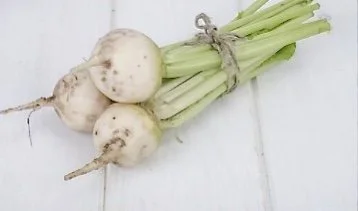Further Misadventures of World War Two, Prisoner of War, Thomas McNeish
Story two in the continuing mis-adventures of private Thomas McNeish
Image taken at Stalag XXA, Torún, eastern Poland - Private McNeish the smallest in the back row.
planting sugar beets
It was a wet, miserable, day in 1942, in a muddy field down on the farm, somewhere in north east Poland, where a working party of allied prisoners of war were hard at work. Or were they?
Thomas McNeish, my dad, was one of these prisoners. His home address for the next, nearly five years of his young life, was hut 32, Stalag XXA, Torún, eastern Poland.
Nearly a tenth of his life as it turned out. His time in captivity, as previously mentioned in story one, was a mixture of being confined to the prison camp or alternatively, being out in the surrounding country side working on farms or forests, under the gaze of armed guards.
Let us return to a muddy field in 1942, down on the farm in deepest Poland.
Dad and his fellow working party prisoners were planting sugar beets that day, under the gaze of two armed German guards. The guards had spent time at the start of the day, demonstrating the correct method of planting. This method, as explained by the guards, was to punch a hole in the ground with a wooden ‘dibble’, issued for the purpose, then tenderly place the precious young plant into the pre prepared hole, roots down, early shoots to the sky. Simple.
It was a two prisoner job; the dibble handler in the lead, followed by the planter, who was also the hole closer. The dibble handler, to aid the efficiency of the operation, having created the planting hole, would shuffle up the allocated distance and proceed punching and preparing the next planting hole. Thus making space for the following planter to carry out his task. The operation was like clockwork, just as demonstrated by the armed instruction team.
seedling sugar beets
However there was one problem. This group of seemingly compliant, green fingered prisoners had other ideas. They were, as best they could, intent on doing all in their power to thwart the German War effort and in doing so help the British War effort. Even if just a little. Such belligerence helped keep their moral high. The secret was not to be very obvious, as being shot was always a possibility.
The simple plan involved, energetically and with apparent good intent and saintlike irreproachability, but with sleight of hand, plant the beets, upside down. This unusual approach to the world of olericulture continued unabated and, more importantly, unnoticed by the less than observant guards for some time. After a while this unorthodox planting method was spied by the two guards, who immediately, brandishing their rifles, emerged from their cosy, dry shelter out into the muddy field and ordered everyone to stop what they were doing. Work immediately ceased and perplexed prisoners stared at the spluttering guards.
There followed a few minutes of strange communication, which included, German, pigeon English, broad Scots and a smidgeon of Polish, supported by fiend surprise, demonstrations of innocence, confusion, oh and not forgetting the ubiquitous, waving of arms and pointing.
Eventually all seemed clear and the apologies flowed, with the plea; ‘sorry, we don’t understand.’ In exasperation the guards laid down their rifles and proceeded to again demonstrate the correct planting method. Prisoners prolonged the ‘lesson’ by continuing to demonstrate their incompetence.
At that point the heavens decided to participate in the pantomime by converting all available water being held in the sky at that moment into a torrential rain storm, turning an already muddy field into a quagmire. All participants in the beet planting escapade, including the guards, exited stage left, at speed, heading for the nearby barn and shelter.
It was not long before one of the guards then realised he had left his rifle in the ‘paddy’ field. The prisoners were unceremoniously ordered back out into the storm to search for the lost rifle.
It was soon found and in the true spirit of soldiers, the mud spattered weapon was handed over to its panic stricken owner, the seriously relieved guard.
And so the drudge of prison life continued.

